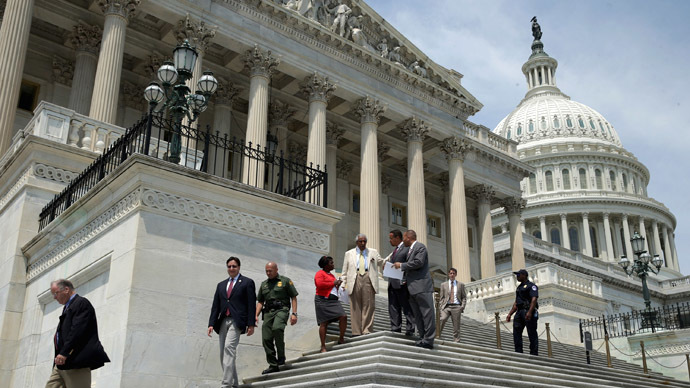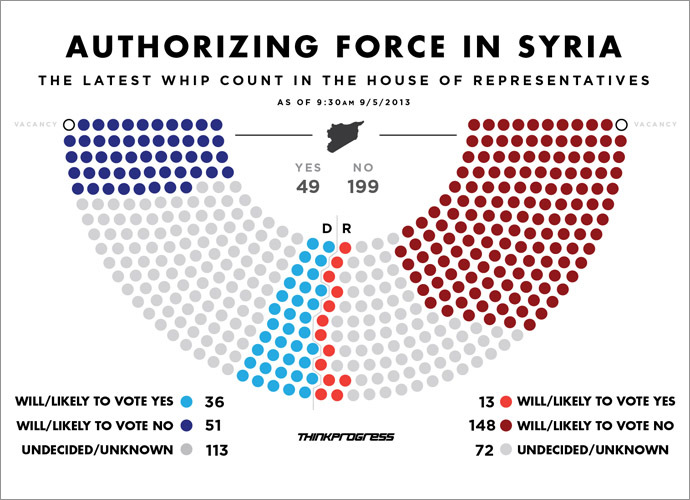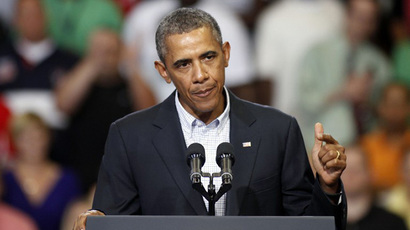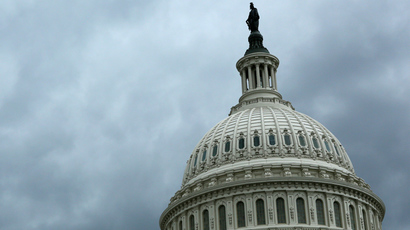Congress may vote ‘No’ on Syria attack

While President Barack Obama attempts to drum up support overseas for a potential strike against Syria, lawmakers in the United States House of Representatives appear not all that likely to authorize the use of military force.
Obama is currently meeting with international leaders in Russia at the annual G-20 meeting, where he is reportedly lobbying foreign representatives to rally behind a US-led strike against Syrian President Bashar Assad. As American politicians prepare to vote on whether or not they should authorize such an attack, however, Obama’s cause is quickly losing support in Congress.
According to analysis conducted Think Progress, lawmakers in the House are leaning towards a “no” vote with regards to approving a strike against Assad to retaliate against his alleged use of chemical weapons on Syrian civilian last month outside of Damascus.
Compared to earlier in the week, lawmakers in the House are now more likely to vote against authorizing a strike. The website reported Thursday morning that 199 US representatives are expected to shut-down any strike against Syria, with 49 lawmakers in the House looking towards voting yes.

Think Progress says their latest research reveals a drastic change that has occurred literally overnight. According to their reporters, 30 new lawmakers are now likely to vote against a strike, while the group of those expected to approve military action has only accumulated three new representatives since the previous day.
The latest figures posted by Think Progress were updated Thursday morning, only hours after lawmakers in both the House and Senate discussed what action, if any, should be taken to reprimand Assad’s regime.
On Wednesday, the Senate Foreign Relations Committee voted 10-to-7 in favor of using military force in Syria, but the full chamber will have to weigh in before a strike is agreed upon. Meanwhile, the House isn’t expected to vote until next week, and at this rate the lawmakers in the Republican-controlled chamber of Congress are likely to reject a plan that would target Assad.
The Obama administration said previously that they want to launch a limited, proportional strike in Syria that would degrade Assad’s capability of using chemical weapons in the future. And while the Senate committee gave him the initial go-ahead on Wednesday, others in Congress aren’t quite certain how to move forward.
Sen. Rand Paul (R-Kentucky), a libertarian-leaning lawmaker with staunch isolationist views, said he opposes any use of force overseas. Sen. John McCain (R-Arizona), another leading Republican in Washington, complained earlier this week that the latest plan of action isn’t aggressive enough.
According to Think Progress, 149 Republicans in the House are likely to disapprove a strike on Syria, while only 13 are expected to vote in favor of using force.
“The numbers are a contrast to 2002, when Democrats in the House provided ‘the bulk of the opposition’ to President George W. Bush’s Iraq war resolution — though a majority of Democrats (61 percent) still backed war,” Think Progress reported. “Only six House Republicans voted against the Iraq war in 2002.”
At the same time, support isn’t all that rampant among the American public either. According to a poll conducted by the Washington Post in conjunction with ABC News that was released on Wednesday, only 36 percent of Americans say they’ll support an initiative that would involve launching missiles against the Syrian government.














